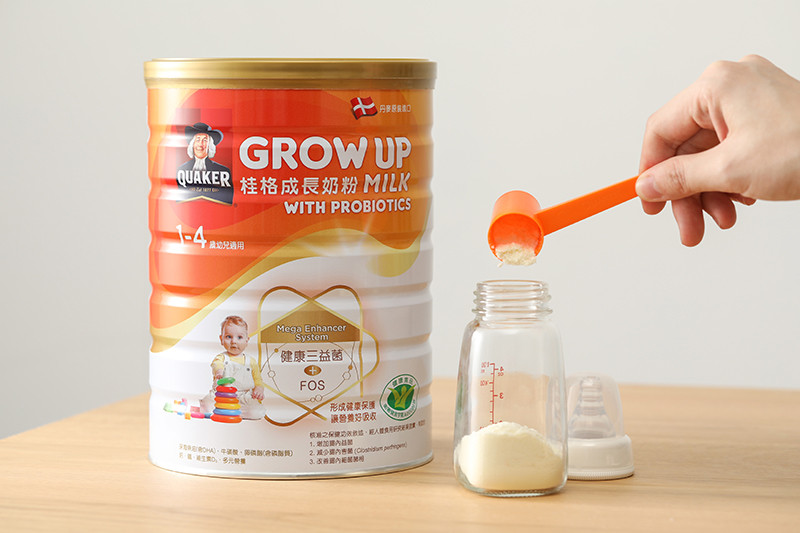Deliberations About a Baby's Development Need to Start the Gut
Our intestines contain around 500 million neurons. Studies have found that intestinal bacteria can affect an infant's learning development and ability to concentrate through various "signaling substances." Intestinal discomfort can also influence a baby's mood. Age 0 to 3 is a crucial time period for a baby's physical development. During this time, activity, metabolism, and microbial balance of intestinal microflora are all key factors that can affect the future development of the baby.

Don't Let Babies Have an Unhappy Gut
Starting birth, babies begin to come in contact with intestinal bacteria and cultivate their own. Babies with poor intestinal functions are prone to exhibit signs of discomfort in their digestive tract, including spitting up milk and difficulties in passing stools. The development of intestinal flora becomes stable when the baby is around 2 to 3 years old. Feeding breast milk to babies under the age of six months can help with increasing the amount of probiotics in the baby's intestines and prevent the invasion of pathogens or harmful bacteria.
Choose the Right Formula to Create an Unstoppable Army in Your Baby's Gut
In situations the mother cannot breastfeed due to lactation insufficiency or busy work schedules, or when the baby is older than 1-year-old and has started consuming solid foods, the baby can consume supplementary probiotics which can help regulate intestinal functions. These probiotics may include: Probiotic A lactobacillus acidophilus, which grows in the small intestines and increases beneficial bacteria; Probiotic B bifidobacterium lactis, which lives in the large intestines to reduces harmful bacteria; Probiotic C lactobacillus paracasei, which grows in the small intestines to improve microbiota.
Probiotics A, B, and C can be distributed to different parts of a baby's intestines and they each do their part to help take care of the baby's digestive health. In addition, babies can also supplement "prebiotics" such as FOS (Fructooligosaccharides), which stimulates the growth of probiotics, helps reduce harmful bacteria in the intestines, and maintains the functions of the digestive tracts.
Make the Most Out of the Development Period by Letting Good Intestinal Bacteria Work Cohesively
As defined by the International Scientific Association for Probiotics and Prebiotics, probiotics are "living microorganisms that when administered in adequate amounts, produce a health benefit in the host." When choosing growing-up formula, mothers are recommended to consider their babies' nutritional needs and whether the formula works cohesively with the good bacteria in the intestines. In order to make the most out of the crucial growth development and intestinal flora cultivation, mothers are encouraged to choose infant formulas which have been proven through clinical trials to help increase beneficial gut bacteria and awarded National Health Food Certification.
Quaker's "Three Probiotics" is the only growing-up formula that has obtained National Health Food Certification. It is made with advanced technology that protects bacteria in dormant state. Proven through clinical trials conducted by the country's medical universities, drinking 3 glasses of the formula a day can increase the amount of beneficial bacteria in the gut by 100 times in a period of 18 days. Quaker's "Three Probiotics" contains probiotics A, B, and C, as well as FOS to form the basis of a healthy gut. Nutrients that are important for other aspects of a baby's development have also been added to ensure the product is a safe and reassuring option when it comes to switching to infant formula.
